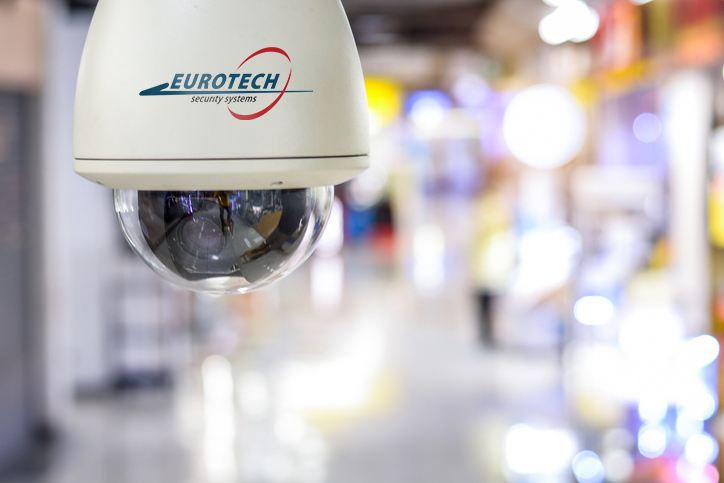The Benefits of Professionally Installed Business Alarms vs DIY
By Peter Alligan, Managing Director at Eurotech Security Systems
I’m Peter, a dedicated security consultant with a wealth of experience spanning over four decades in the security industry. As the Managing Director at Eurotech Security Systems, an NSI Gold accredited security installer, my primary mission is to help businesses secure their premises and protect their valuable assets. Eurotech Security Systems prides itself on several unique selling points that set us apart: we’re a professional, local, and independent security installer, with a history that extends over 40 years. Our reputation is solidified by trusted online reviews, highly competitive pricing, the coveted NSI Gold certification, and our team of reliable, highly skilled technicians, all while being recognised and approved by insurance companies.
In this article, I aim to shed light on the numerous advantages of opting for professionally installed business alarms over DIY solutions. These benefits are not just limited to the initial installation phase but ensure that your business enjoys a robust security system customised to your unique needs.
Advantages of Professionally Installed Business Alarms:
- Expertly Designed Systems: When you choose a professional security consultant, you gain access to a wealth of experience in identifying vulnerabilities. Professionals know where to strategically place cameras and sensors to maximise security coverage. This ensures that your security system is custom-tailored to your business’s unique layout and potential risks.
- High-Quality Equipment: Quality matters in the world of security. Professional installers like Eurotech Security Systems provide high-quality equipment that not only ensures operational security but also aids in the identification of intruders in the unfortunate event of a crime. This equipment can make a significant difference in capturing crucial details.
- Reduced Insurance Premiums: Insurance companies often offer discounts to businesses that have professionally installed security systems in place. By reducing the risk of potential threats, your business becomes more attractive to insurers, leading to lower premiums.
- Monitoring Packages: Professional security installers typically offer monitoring packages that keep a watchful eye on your business 24/7. In the event of an alarm trigger, the monitoring team can respond promptly, alerting the authorities if necessary, which can be invaluable for preventing or mitigating losses during a security breach.
- After-Care and Maintenance: A key advantage of professional installation is post-installation care. With scheduled servicing and maintenance, your system remains in peak condition, reducing the likelihood of false alarms and ensuring it performs optimally when needed the most.
- Thorough System Testing: Before leaving the premises, professional installers rigorously test the entire security system to ensure that it functions as intended. This testing phase is crucial to eliminate any potential flaws or weaknesses that might exist.
- Customisation: Every business is unique, and your security needs should be too. Professional installers work closely with you to customise your security system to match your specific requirements. This ensures that your assets, employees, and customers are protected comprehensively.
FAQs – Expert Insights:
Q: Is it cost-effective to hire a professional installer?
A: In the long run, yes. While professional installation might have an initial cost, the reduced insurance premiums and added protection can lead to substantial cost savings. Additionally, quality equipment means your system is less likely to need costly repairs or replacements.
Q: What if I already have some DIY components installed?
A: A professional installer can often integrate your existing components into a comprehensive system. This can enhance your current setup while keeping costs reasonable.
Q: Can I monitor my business remotely with a professionally installed system?
A: Yes, many professionally installed systems offer remote monitoring options, allowing you to keep an eye on your business from anywhere with an internet connection.
A list of common problems that individuals may encounter when installing their own DIY security system:
- Improper Placement of Equipment: DIY installers often lack the expertise to determine the most effective locations for cameras, sensors, and alarms, leading to blind spots or ineffective coverage.
- Incomplete Coverage: Inadequate planning and lack of experience can result in critical areas being left uncovered, leaving vulnerabilities in your security.
- Inadequate Equipment Quality: DIY systems might use lower-quality equipment, which can lead to false alarms, missed events, and poor image quality in case of incidents.
- Technical Compatibility Issues: When mixing and matching different components and brands, compatibility problems can arise, leading to a system that doesn’t function seamlessly.
- Inadequate Wiring and Connectivity: Faulty wiring and connection issues can result in system malfunctions or unreliable communication between devices.
- Lack of Remote Monitoring: Many DIY systems lack remote monitoring capabilities, which are crucial for real-time alerts and access to your security system from anywhere.
- False Alarms: DIY systems are more prone to false alarms, which can lead to frustration and potentially unnecessary calls to the Police.
- Insufficient Tamper Protection: Ensuring that your system is tamper-resistant is vital. DIY systems may lack this feature, making them vulnerable to sabotage.
- Inadequate Security Codes and Passwords: Weak or easily guessed codes and passwords can compromise the integrity of your system.
- Lack of Professional Maintenance: DIY systems often don’t come with maintenance plans, which can result in missed updates, equipment failures, and reduced effectiveness over time.
- Limited Integration: DIY systems may not integrate well with other smart devices or automation systems, limiting their overall functionality.
- Limited Customisation: DIY systems often lack the flexibility to be tailored to your specific security needs and preferences.
- Complex Installation Process: DIY installation can be challenging for those with little technical expertise, leading to frustration and potentially leaving the system incomplete.
- Difficulty in Troubleshooting: When issues arise, DIY installers may struggle to diagnose and resolve problems effectively.
- Lack of Expertise in Regulations: Adhering to local regulations and legal requirements for security systems can be challenging for DIY installers without professional guidance.
- Inadequate User Training: DIY installers may not fully understand the system’s operation, reducing its effectiveness.
- Inconsistent Updates and Support: DIY security systems may lack regular software updates and customer support, leaving users with outdated protection.
- Limited Warranties: DIY equipment often comes with limited warranties, leaving users at risk of costly repairs or replacements.
It’s important to consider these challenges when deciding between a DIY security system and a professionally installed one, as they can have a significant impact on the effectiveness and reliability of your security measures.
Conclusion:
In the world of business security, it’s essential to make the right choices to protect your assets and maintain peace of mind. Opting for professionally installed business alarms, as advocated by Eurotech Security Systems, brings a multitude of advantages. With a system designed by an expert, high-quality equipment, lower insurance premiums, monitoring packages, after-care, thorough testing, and customisation, your business is in capable hands.
Remember, a professionally installed security system is an investment in the safety and success of your business, ensuring that you have a security infrastructure that truly meets your unique needs.

